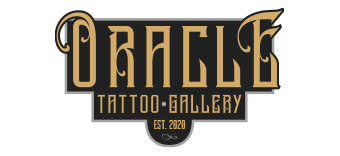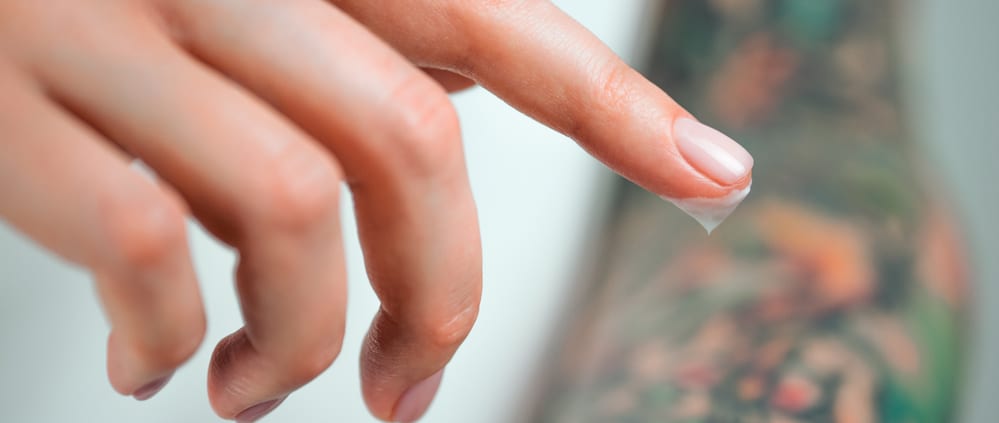Caring for an Infected Tattoo: Steps to Get Healed
Getting a tattoo is an exciting experience, but there can sometimes be complications, particularly when aftercare instructions are not followed or when you have an ink allergy. If you suspect your tattoo is infected, it’s crucial to take immediate action to ensure proper healing and prevent further complications. Knowing what an infected tattoo looks like, when you need to see a doctor, and the steps required to get healed are all important things to know, whether this is your first tattoo or your thirtieth.
Key Takeaways
- Watch for redness, swelling, warmth, pus, or systemic symptoms. Act promptly if you suspect infection.
- Symptoms like spreading redness or increasing pain require urgent attention.
- Infections can stem from poor aftercare, contaminated equipment, immune issues, allergies, skin conditions, or environmental factors.
- Keep the tattoo clean, apply topical treatments, keep it dry, avoid picking, and monitor for improvement.
- Oracle Tattoo Gallery’s Philadelphia studio prioritizes safety and client satisfaction. Schedule a consultation for a positive tattoo experience.
Signs Your Tattoo is Infected
An infected tattoo is not unlike other infections. That said, recognizing the signs of an infected tattoo is crucial for prompt intervention. Common signs include:
- Persistent redness, swelling, or warmth around the tattoo area.
- Severe pain or tenderness, especially beyond the typical discomfort associated with a new tattoo.
- Pus or discharge oozing from the tattoo site.
- Development of a rash, bumps, or blisters on or around the tattoo.
- Fever, chills, or other signs of systemic infection.
When to See a Doctor Immediately
While minor redness and discomfort are common after getting a tattoo, certain signs indicate a more serious infection requiring urgent medical attention. Seek medical help immediately if you experience:
- Spreading redness or warmth beyond the tattoo site.
- Increasing pain or tenderness not alleviated by over-the-counter pain relievers.
- High fever, chills, nausea, vomiting, or other signs of systemic infection.
- Difficulty breathing or swelling of the face or throat.
These symptoms may indicate a severe infection or allergic reaction, which requires prompt medical intervention.
Why Do Tattoos Get Infected?
Tattoos may get infected for a number of reasons, including the following:
Poor Aftercare
Failure to follow proper tattoo aftercare instructions can significantly increase the risk of infection. Proper aftercare involves keeping the tattoo clean, moisturized, and protected from potential contaminants during the healing process.
Contaminated Equipment
If tattooing equipment, such as needles, ink, or surfaces, is not properly sterilized, it can introduce bacteria and pathogens into the skin, leading to infection. It’s essential to ensure that the tattoo studio follows strict sanitation protocols to minimize the risk of contamination.
Compromised Immune System
Individuals with weakened immune systems, such as those with certain medical conditions or undergoing immunosuppressive therapy, may be more susceptible to infections. A compromised immune system may have difficulty fighting off bacteria introduced during the tattooing process.
Allergic Reactions
Some people may experience allergic reactions to tattoo ink or other tattooing materials, leading to inflammation, itching, and infection. Allergic reactions can occur immediately after getting the tattoo or develop over time as the body reacts to the foreign substances.
Underlying Skin Conditions
Individuals with pre-existing skin conditions, such as eczema, psoriasis, or dermatitis, may have a higher risk of developing infections after getting a tattoo. These conditions can compromise the skin’s natural barrier function, making it more susceptible to bacterial infiltration and inflammation.
Environmental Factors
Exposure to environmental contaminants, such as dirty water or unclean surfaces, can increase the risk of infection if the tattooed area comes into contact with pollutants or pathogens. It’s essential to avoid activities that may expose the tattoo to potential contaminants until it has fully healed.
What are the Steps to Take to Heal an Infected Tattoo?
Do keep in mind that this advice cannot serve as a medical diagnosis. If you suspect that your tattoo is indeed infected, it is best to see a medical practitioner first before starting a care regimen.
With that in mind, here are the steps to healing an infected tattoo:
1. Keep It Clean
Maintaining cleanliness is crucial when dealing with an infected tattoo. Start by thoroughly washing your hands with soap and warm water before touching the tattooed area. Use a mild, fragrance-free soap to gently clean the infected tattoo, ensuring to remove any debris or discharge. Avoid scrubbing too harshly, as this can irritate the skin further.
2. Apply Topical Ointments
After cleaning the infected tattoo, apply an over-the-counter antibiotic ointment or cream recommended by your healthcare provider. These topical treatments help combat bacterial growth and promote healing. Follow the instructions provided with the product, applying a thin layer over the affected area. Be sure to use clean hands or a sterile applicator to avoid introducing additional bacteria.
3. Keep The Area Dry
Moisture can exacerbate tattoo infections, so it’s essential to keep the infected area dry. Avoid activities that involve prolonged exposure to water, such as swimming or soaking in baths. Additionally, refrain from covering the tattoo with occlusive dressings or bandages, as these can trap moisture and hinder the healing process. Instead, allow the tattoo to air dry naturally after cleaning.
4. Do Not Pick or Scratch
As tattoos begin to heal, they can feel incredibly itchy and dry. While it is tempting to itch or pick at peeling skin, doing so many only delay healing and worsen your infection. Resist the urge to touch the tattoo with dirty hands or sharp objects, as this can introduce additional bacteria and cause further damage to the skin. If itching becomes unbearable, gently pat or tap the area instead of scratching.
5. Monitor for Improvement
Keep a close eye on the infected tattoo for any changes or signs of improvement. Watch for symptoms such as increased redness, swelling, warmth, or drainage, as these may indicate that the infection is worsening. If the symptoms persist or worsen after a few days of home care, seek medical attention promptly. Your healthcare provider can assess the infection and prescribe appropriate treatment if necessary.
Preventing Tattoo Infections in the Future
Now that your tattoo has begun to heal, it is important to learn how to prevent this from happening again in the future. Although you may not know what caused the infection, there are steps you can take to ensure your safety.
Firstly, ensure that you are going to a reputable tattoo artist. The shop and the artist should both prioritize their safety and yours. Secondly, follow aftercare instructions diligently. These instructions typically include keeping the tattoo clean and moisturized, avoiding exposure to direct sunlight, and refraining from picking or scratching the tattooed area. Adhering to these guidelines can help prevent infections and promote optimal healing.
Lastly, be mindful of where you expose your tattoo to minimize the risk of contamination. Avoid swimming in pools, lakes, or oceans until the tattoo has fully healed, as these environments may harbor bacteria and other pathogens. Similarly, avoid activities that involve contact with dirty or unclean surfaces that could introduce bacteria to the tattooed area.
Looking for a Philadelphia Tattoo Shop?
If you’re in the Philadelphia area and looking for a trusted tattoo studio, look no further than Oracle Tattoo Gallery. Our team of experienced artists prioritizes cleanliness, safety, and client satisfaction to ensure a positive tattoo experience. Whether you’re getting your first tattoo or adding to your existing collection, we’re here to bring your vision to life with professionalism and artistry. Contact us today at 215-638-1601 or by filling out the online form to schedule a consultation and begin your tattoo journey with confidence.



